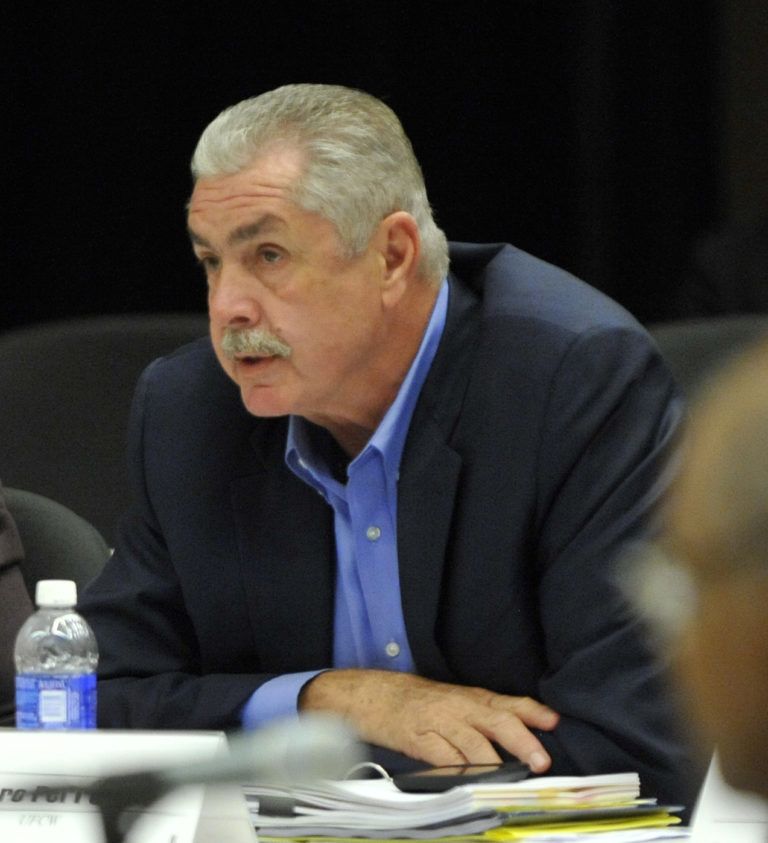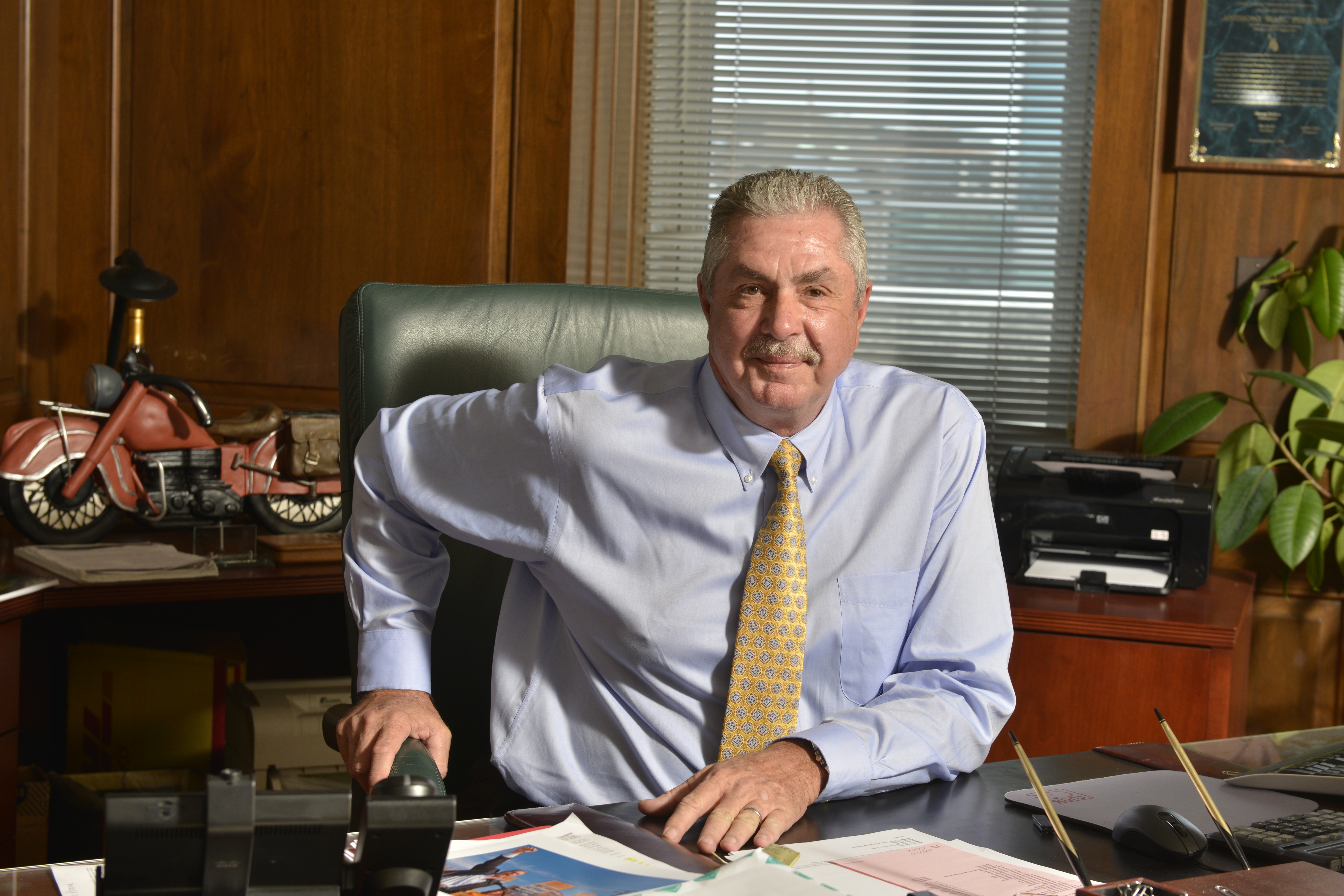
This Labor Day weekend, Jobs with Justice has launched a series of stories called The Way They Worked to collect and share stories from people in the labor movement about how their grandparents worked, and what they learned from them. We sat down with our own UFCW International Secretary-Treasurer Marc Perrone to hear about his grandfather Joe and grandmother Gaetana:
My grandmother arrived in America through the port of New Orleans and my grandfather through Ellis Island, both immigrating from Italy.
Before my grandmother Gaetana met her future husband Joe, she stayed for a while in Louisiana among other Italian immigrants, and her brother worked in the cane fields. Unfortunately, Gaetana’s brother died while working out in the fields one day. The people who employed Gaetana’s brother never notified his family, and buried him in an unmarked grave.
This sad occurrence was just one example of the experiences many immigrant families faced in those times.
Eventually, both of my grandparents and their families moved to Texas where they became sharecroppers and farmers. Joe and Gaetana eventually met and married.
As immigrants, my grandparents and their families experienced a good deal of discrimination. They would always tell me a story, and it has really stuck with me all these years. Before they were sharecroppers, my grandfather and his younger brother had heard that the railroad company was laying track and that there were jobs to clear the land. They walked over to the job-site but were told that since they did not own any tools, they couldn’t get the job. So, my grandfather and his brother walked into town and went to a hardware store. They didn’t have any money, but they talked to the store owner to work out a deal where they could each buy an axe on credit so they could work. Finally, the store owner agreed to the deal and gave them the axes on the condition they pay him back. The brothers then returned to the job-site to talk to the foreman about hiring them, since they now owned the appropriate equipment. However, the foremen simply told them, “we don’t hire Italians here.”
The brothers protested, saying they had been told if they got the tools they could work, but the answer was the same. The brothers were forced to return to the hardware store and return the unused axes, but the store owner refused to take them back, leaving the brothers in debt to him, with no foreseeable way for them to pay him back.
My grandmother Gaetana also had been teased so much about her Italian name in school that she changed her name to Agnes, and was harassed so badly for being an immigrant that she dropped out of school and never learned to read or write.
Despite these hardships, my grandparents worked very hard as sharecroppers and were eventually able to scrape enough money together to buy a plot of land, which they farmed, raising cattle and other farm products. They were up at 5:00 every morning and out the door, checking on the animals, plowing the fields, baling hay, and keeping things going.
The main thing I learned from my grandparents was that if you wanted something in life, you had to work really hard to get it. But if you did that, and respected people, then good things would come to you–and that you could in fact make it, even if you started with nothing.
The other thing I learned, was just how important family was. In addition to working hard on the farm and garden, my grandmother always made sure we had a big traditional Italian Sunday dinner, with home-made spaghetti sauce. And my grandfather always told me, no matter what it was about, I could always come to my family with a problem or if I needed help.
Seeing discrimination and experiencing it themselves, my grandparents were believers in respecting people–treating them fairly and decently, and that had a big impact on me. For many people, families are often your only support system. Today, so many people come to America for a better life, and have to find work and face all kinds of barriers, including discrimination. Many come all by themselves, and their families are far, far away. In these situations, who becomes your support system when you are treated unfairly at work? When workers stick together, that support system is each other. When you are going through the same experiences, or living in worker housing together, people learn to rely on each other and work together to make things better. I think that’s a big part of why I started getting involved in the union.
America’s economy benefits from the hard work and contributions from immigrants, but they are often taken advantage of, discriminated against, or left vulnerable by a lack of protections in the workplace. Both in the days of my grandparents, and today, employers try to drive apart immigrants from different countries or races, or pit them against each other, so that it is harder for them to unite in dealing with issues in the workplace. But when workers stand together they have the power to change things that aren’t right, and even the playing field.
That’s why, as a union, we try to help immigrants however we can–whether it’s creating a path to citizenship, or bargaining for important workplace protections. Your union is truly your family when your support system is far away, and even if it isn’t. When my father died, I had been working for our union, the UFCW, for 33 years. I was walking out of the church from his funeral, and saw the former director who had hired me to work at UFCW coming in. He was over eighty years old, had been retired for 20 years, and had traveled over 100 miles to be there. That really demonstrated to me how union people are your family.
Whether someone is an immigrant or not, unions are avenues and vehicles for people to improve their lives. They are made up of groups of people that provide physical and psychological support, and can be the difference in feeling like you are powerless to change something, to feeling empowered to make a difference.
Tell us about your grandparents’ work story! Send submissions to Submissions@www.ufcw.org, post on our facebook page, or fill out an online form here.

